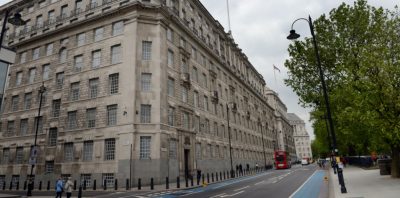MI5 Given the Go-ahead to Allow Informants to Commit Crimes

Human rights campaigners today vowed to appeal against a “knife-edge” divided tribunal ruling which allowed MI5 to continue authorising informants to commit serious criminal offences.
Privacy International, Reprieve, the Committee on the Administration of Justice (CAJ) and the Pat Finucane Centre took legal action against the government over a policy the groups claim “purports to permit agents to participate in crime” potentially including murder, kidnap and torture.
The campaign groups said the policy effectively “immunises criminal conduct from prosecution” and asked the Investigatory Powers Tribunal (IPT) to declare the policy unlawful and grant an injunction to restrain further conduct.
But the tribunal today ruled the policy lawful by a 3-2 majority.
The judgment said that MI5 has “an implied power” under the Security Service Act “to engage in the activities which are the subject of the policy under challenge.”
But it said that “this does not mean that [MI5] has any power to confer immunity from liability under either the criminal law or the civil law.”
Reprieve director Maya Foa said:
“The IPT’s knife-edge judgment, with unprecedented published dissenting opinions, shows just how dubious the government’s secret policy is.
“Our security services play a vital role in keeping this country safe. But history has shown us time and again the need for proper oversight and common-sense limits on what agents can do in the public’s name.”
Privacy International’s legal officer Ilia Siatitsa said two of the IPT’s five members “produced powerful dissenting opinions” in an attempt to “uphold basic rule-of-law standards.”
Ms Siatitsa said:
“As one of them put it, it is wrong to ‘open the door to powers of which we have no notice or notion, creating uncertainty and a potential for abuse.’
“We think the bare majority of the IPT got it seriously wrong. We will seek permission to appeal to protect the public from this abusive secretive power.”
CAJ deputy director Daniel Holder said:
“The practice of paramilitary informant involvement in serious crime was a pattern of human-rights violations that prolonged and exacerbated the Northern Ireland conflict.
“Archival documents show that the unlawful nature of informant conduct here was known at the time and it appears policy since has been even more formalised.
“This close ruling is far from the end of the matter.”
*
Note to readers: please click the share buttons above or below. Forward this article to your email lists. Crosspost on your blog site, internet forums. etc.
Featured image is from Morning Star

